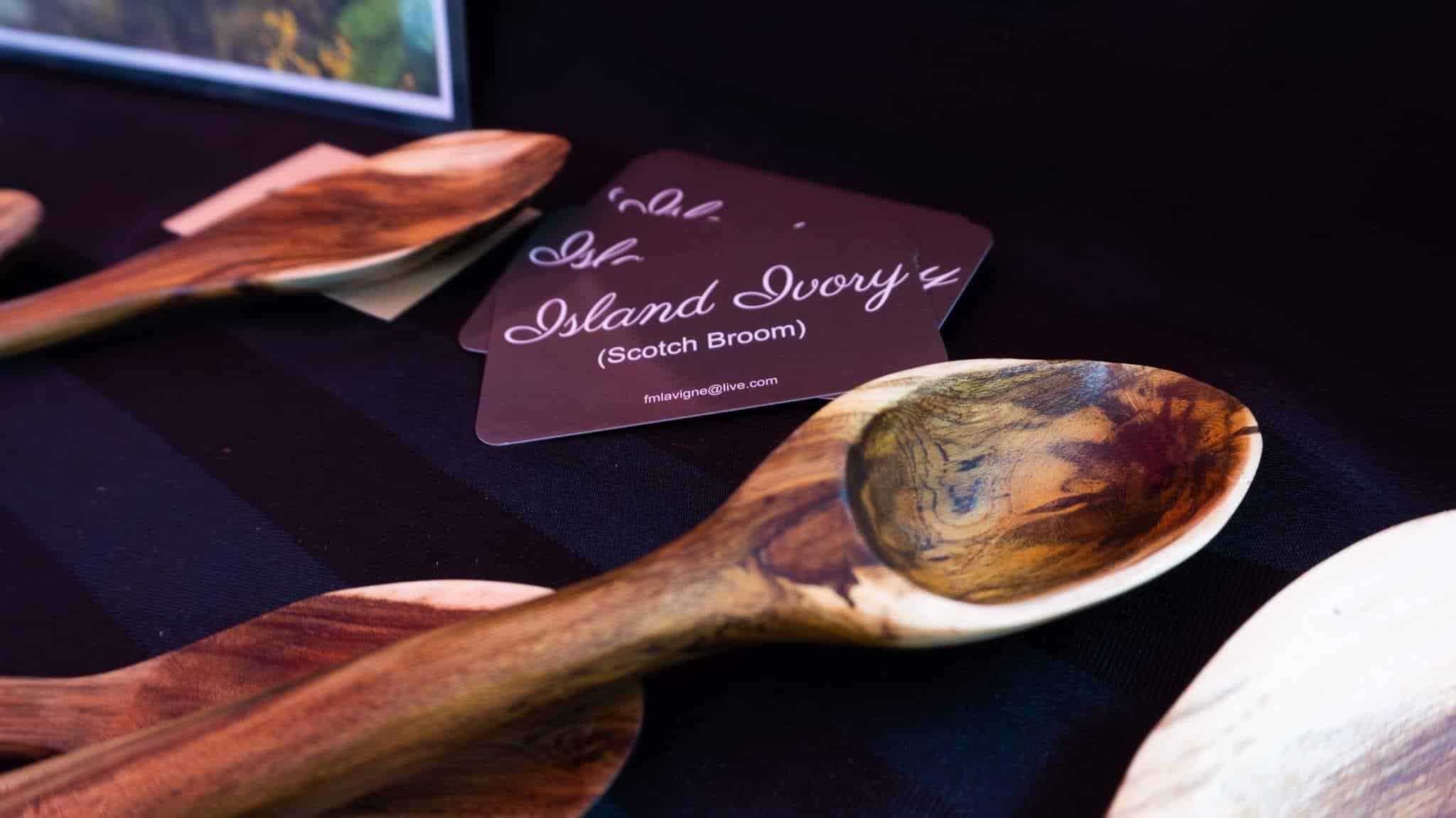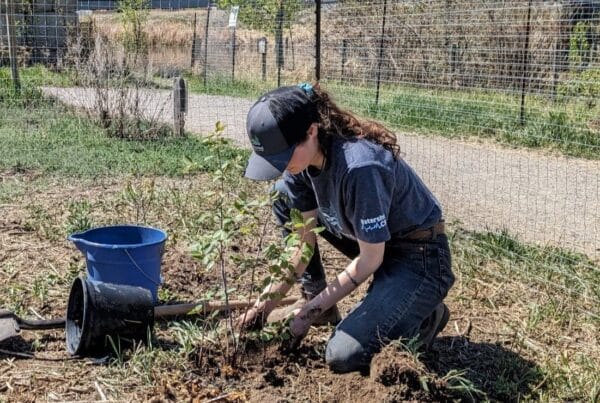By Lisa Houle | September 1, 2022
An artist may experiment with many different mediums to find just the right fit. For Vancouver Island resident Francois Lavigne, carving invasive Scotch broom into useful wooden items is more than just the act of using the wood itself, it’s a way to help clean up invasive species on the island. “It’s an invasive plant that’s taken over. We’re trying to get rid of it so there’s no harm in trying to do something with the wood,” said Francois, saying he prefers to use invasives as a resource so he’s not using up good trees.
Francois has a background in fine arts, and he started carving with caragana wood as a teenager growing up in a small town in Ontario. This was his way of finding his own niche amongst his family of artists. Moving to Vancouver Island four years ago, Francois started to learn about invasive Scotch broom and decided to see what the wood was like to work with since it was a cheap and plentiful option. “It is a real joy for me to take something with no perceived value and transform it into something beautiful and practical,” he said.
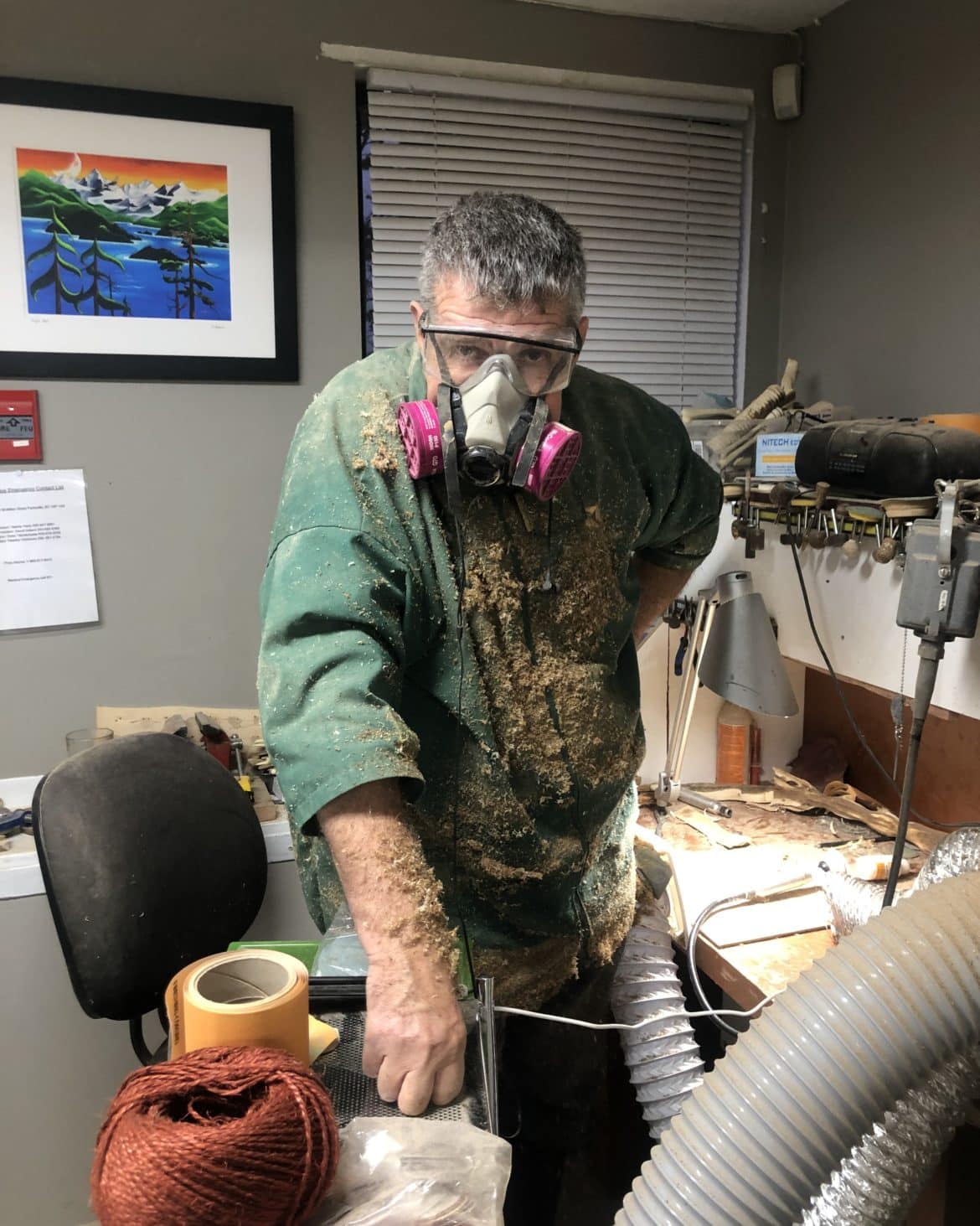
Products made from Scotch broom are quite smooth and glossy when Francois is finished with them. He named his business ‘Island Ivory’ as a playful nod to the high polish wood from this plant, unfortunately found in abundance on the island.
Seeing Francois in action at the Cedar Farmer’s Market recently, it’s evident that people respond well to his product and his engaging personality. Locals and visitors were drawn to his booth because it is such a unique twist on using an invasive species. Francois cheekily said to a woman checking out his utensils and buttons, “I’m also selling spreaders. Like the broom, they spread better.”
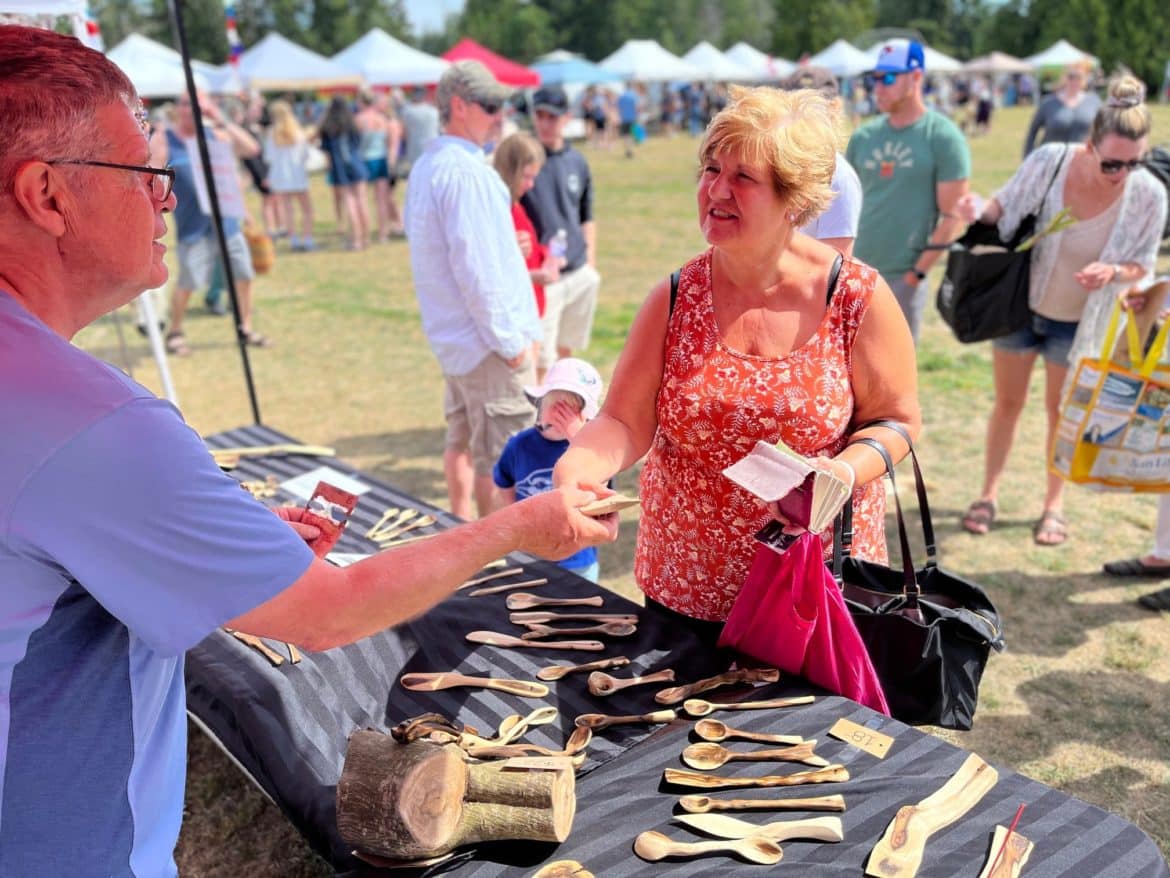
He enjoys the aspect of carving, finding it a calming experience, and he also finds the reactions of people to be encouraging. “The reaction I get from people is funny, everyone is so surprised; even now I can tell who’s visiting my booth if they have experience with Scotch broom.”
On Vancouver Island, ISCBC’s StrongerBC Action teams have pulled 167 large bags full of Scotch Broom this field season alone, covering over seven hectares in total. Nanaimo Action Team member Dan Mattison was happy to connect with Francois and support his creative endeavours.
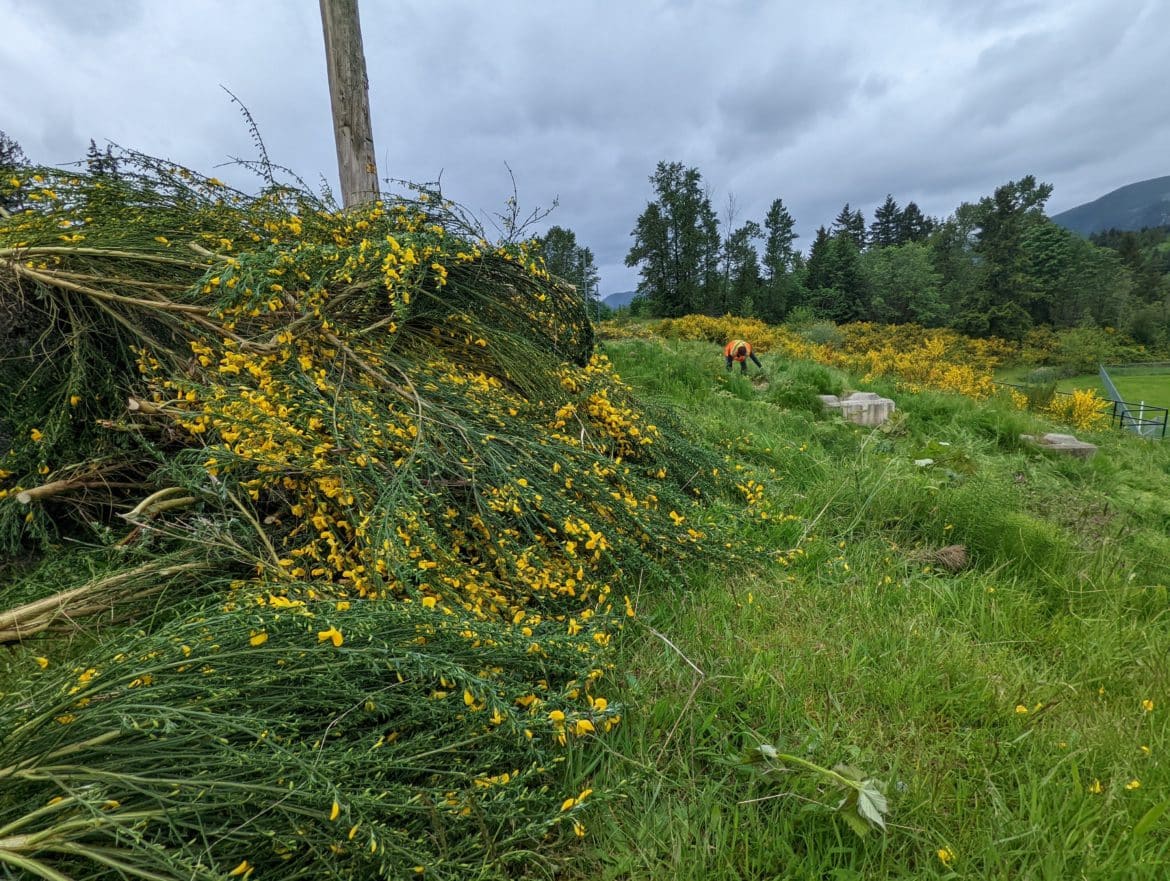
“When I saw what he was doing with Scotch broom, I was so impressed at his entrepreneurial spirit. In contrast with those who woodwork using rare or endangered types of woods, he was using something which everyone else had sort of coined as useless,” said Dan. While the Nanaimo Action Team has only had two opportunities to bring Francois broom which meets his criteria around size, they’re always on the lookout for those big pieces that Francois gets excited about.
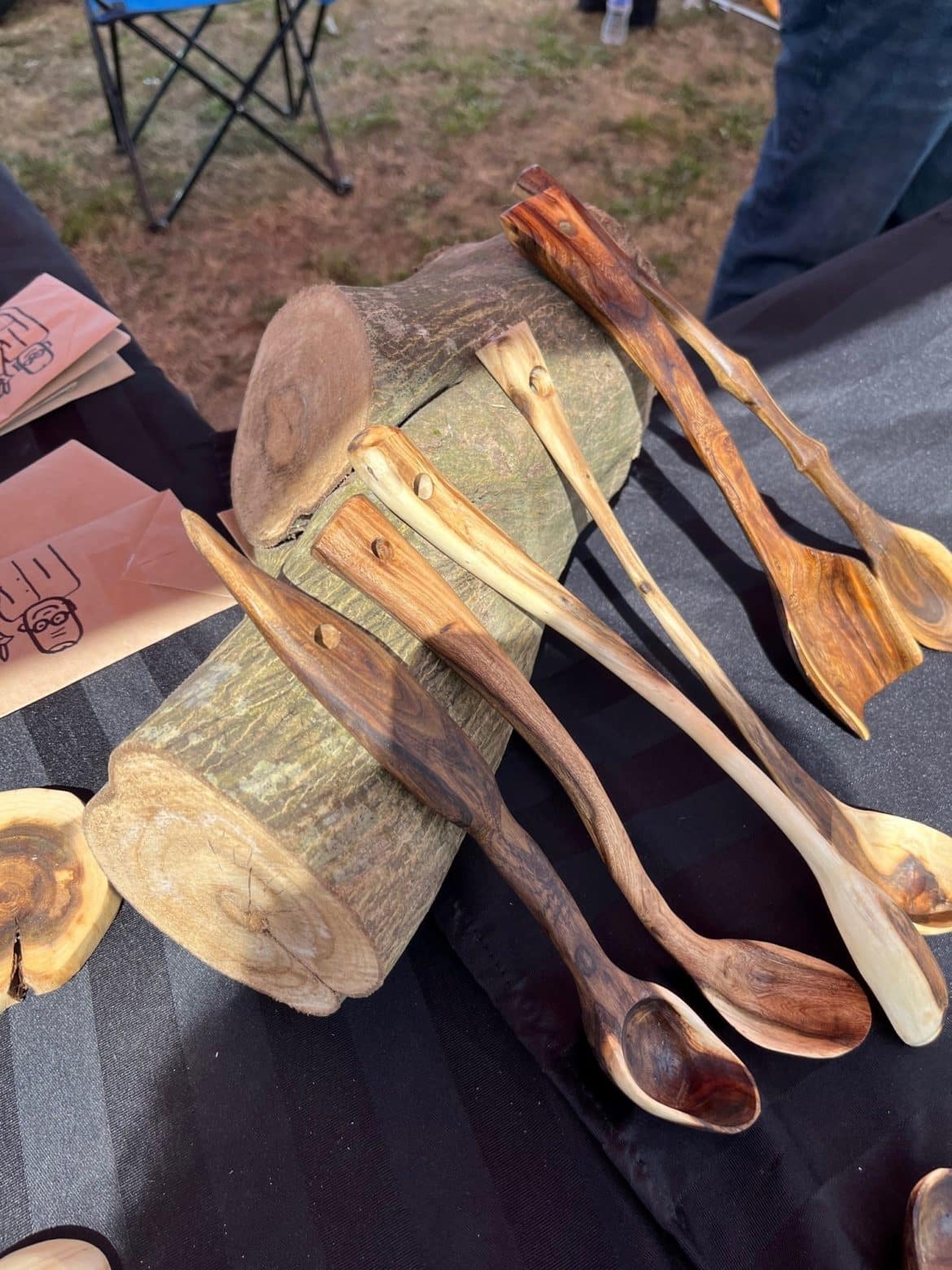
“I think my greatest pleasure in being able to bring him pieces of broom, is just seeing how happy it makes him. It’s not like the amount we’re supplying is making a dent on what’s going into landfill, but I think there’s just something very poetic about taking an invasive plant which is pretty well universally hated and turning it into something useful and marketable. It feels like at least there’s a little slice of nice coming from the whole thing.”
Have you had a unique encounter with an invasive species? Drop Lisa a line at lhoule@bcinvasives.ca
ISCBC is grateful to the StrongerBC funding from the Province of BC that supports individuals in training and providing work for people whose jobs were impacted by the COVID 19 pandemic and to help protect BC’s lands and waters from invasive species.
Lisa is a Communications and Outreach Coordinator at ISCBC. She values a diverse environment and connecting with others about environmental protection. In her spare time Lisa enjoys spending time at the ocean and beach combing for sea glass. You can reach Lisa at lhoule@bcinvasives.ca
Share


